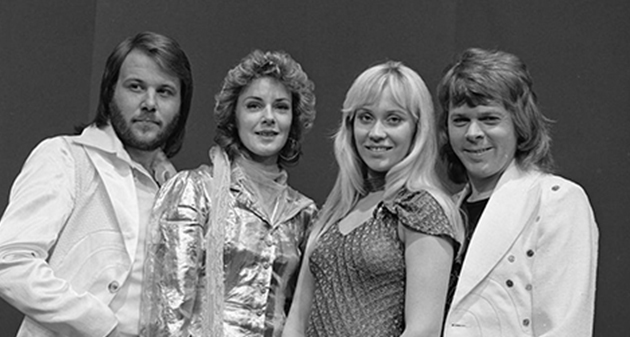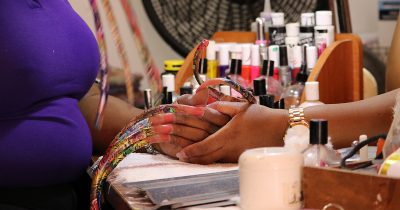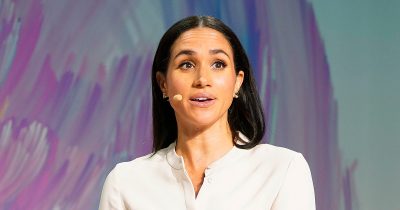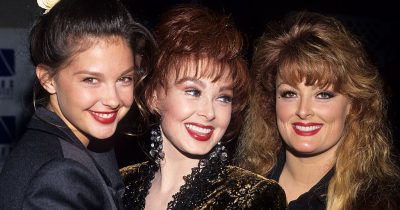
ABBA are well known these days as one of the most legendary bands on the planet. Still to this day, the Swedish quartet are superstars around the world. Yet one of the group’s members, Agnetha Faltskog, has chosen a life outside of the spotlight.
Faltskog, alongside Anni-Frid Lyngstad, was one of the main singers in ABBA. With an all-time great pop voice, she got people to dance with some songs, while breaking their hearts with others. Above all else, though, she became one of the most fascinating music icons of all time alongside her fellow band members.
These days, Faltskog lives a steady life in Sweden, but that doesn’t mean she’s not still producing new music. Now, aged 74, she looks amazing!
There are very few people that haven’t heard ABBA. It doesn’t matter if you were there when they performed Waterloo for the first time, or weren’t to be born for another 30 years. The 10-year-olds of today most likely dance just as wildly as anyone ever did upon hearing the group’s music.
ABBA – worldwide superstars
Even naming a single favorite ABBA song is pretty much impossible. And that’s probably why they became such world-wide superstars; there’s an ABBA song for every moment of our lives, no matter if it’s sad, happy, inspiring, or regretful.
Something that’s pretty unique about ABBA is the fact that all of the members virtually disappeared following the group’s split. Sure, they continued to make music, but were content to live a quiet life outside of the spotlight. Agnetha Faltskog certainly was, anyway.

So what happened to her following ABBA’s split? And how did she become involved with the group from the start? This is the wonderful story of Agnetha Faltskog!
Agnetha was born on April 5, 1950 in Jönköping, Sweden. She was the first of two daughters of Knut Ingvar Fältskog – who worked in a department store – and mother Birgit Margareta Johansson.
Agnetha Faltskog – early career
From a very young age, Agnetha Faltskog was interested in music. Some of her favorite artists were Tom Jones, Petulia Clark and Dusty Sprinfgield, and she sure had talent.
At just five years of age, Faltskog wrote her first song, which was about two small “trolls”. She would often go to her neighbor’s house to play the piano – she started taking proper lessons at age 8. She also sang in the local church choir.

In 1960, at the age of 13, Faltskog formed the band The Cambers with her two childhood friends. They played only minor gigs in the local community, and two years later she decided it was time for something else.
Agneta joined Swedish folk music band Bernt Enghardt. The band toured around Sweden playing Swedish dance music.
“They had a singer named Agneta before me that quit,” Agnetha recalled. “They had printed posters looking for a new singer, and when they found me and after I auditioned, it was a big plus that I was named Agnetha as well.”
Faltskog worked as a telephonist for a car firm at the same time as she was touring with Bernt Enghardt, but her situation wasn’t ideal.

Debut single at age 17
She got home late, “around 2 or 3 at night”, and was expected to be at work just hours later. One day she even passed out at the car firm, and her mother gave her an ultimatum.
“‘Either you work as a normal person or you dedicate fully to singing’,” Agnetha recalled her mother saying. “It wasn’t a tough choice, I wanted to keep singing.”
Agnetha continued singing with the Bernt Enghardt band for two years, before then branching off to start a solo career. It was when she released her first solo album that she decided to add an “h” to her surname.
At the age of 17, Faltskog’s debut single Jag var så kär [I Was So In Love] was released. It quickly rose to No. 1 on the Swedish sales chart in 1968 – and soon after a guy named Bjorn Ulvaeus heard her song on the radio.

“I remember hearing Agnetha’s first single on the radio. There was something so special about her voice and the fact that she had written that song herself – it was magic,” Benny said in the BBC documentary Agnetha: Abba and After.
Benny Andersson added: “She did a couple sort of back to back, both good songs. She did some good stuff, you know, singing in harmony with herself.”
Transformation to ABBA
Now, Bjorn and Benny happened to be talented musicians and had worked together before. Agnetha’s career sky-rocketed following her first single, and before long, she was set to perform with Bjorn Ulvaeus.
“We did a TV show together and she and I had a duet together. That was a magical moment,” he recalled. “That evening was when it actually happened, we fell in love and then shortly after that we were a couple.”
At the same time as Agnetha and Bjorn performed together, Benny fell in love with another singer Anni-Frid Lyngstad.
Now, they were four very talented musicians in the same room – but they weren’t thinking of starting a band together initially. Then, Anni-Frid and Agnetha featured as background singers on the 1970 Bjorn and Benny album Lycka [Happiness].
The four soon started to work together. In 1972, they recorded the song People Need Love, but it only achieved minor success in Sweden. At this point, the group styled themselves Björn & Benny, Agnetha & Anni-Frid. They decided to compete in Melodifestivalen, the Swedish qualification competition for the Eurovision Song Contest, and performed the song Ring, Ring. They finished third, but the song became a really big hit in Sweden.
Ring, Ring spread to several European countries, where it continued its success. By this point, the group was started to get recognition all over the place. One year later, in 1974, they would finally realize their ambitions.

ABBA – ‘Waterloo’ success
They entered Melodifestivalen once again – but this time with a song titled Waterloo. They won the Swedish qualification, and then did something that would change the course of music history before they performed at the Eurovision Song Contest in Brighton: they decided that their group would have a new name.
ABBA was born.
While ABBA went on to win the Eurovision Song Contest – a moment in ABBA history which by many consider to be the most iconic – Agnetha also had other things on her mind.
In 1971, she and Bjorn Ulvaeus got married, and in 1973, they welcomed their firstborn daughter, Linda. In the middle of this ABBA hysteria, which grew by the day, Agnetha was pregnant.
Needless to say, having children, while becoming one of, if not the biggest, groups on the planet, sure was challenging.
In fact, Agnetha explained that she was kind of happy that they didn’t win the Melodifestivalen with Ring Ring, since she just months away from giving birth to Linda.
“I managed to combine marriage, giving birth, divorce and a world-wide success during the 10-12 years we were doing ABBA,” Faltskog said. “It wasn’t easy, I can tell you that. It wasn’t easy leaving home, especially since dad [Bjorn] was away as well. We left our children but we made sure that they were being taken care off.
Agnetha Faltskog – Bjorn Ulveaus
“We weren’t away as much as one might think. If we were away for 14 days, we decided that we’d be home for 14 days as well.”
World-wide success with ABBA was amazing for all its members, but Agnetha still struggled with the fact that she had to leave her children.
It was tough on her, and she even told herself that she might just leave the group.
“It was tough times, ‘can I handle this or should I leave? How can we solve this?'” I said that we had to be at home the same amount of time we were out touring,” Agnetha continued.
“I was never going to leave [the group], but it was something I could tell myself just to manage, to get everyone to understand how tough it was.”
The success of Waterloo was enormous. But it was just the beginning of what was a new era in music history. Since winning Eurovision didn’t guarantee one success post-competition, it took some time before ABBA got their next big hit.
ABBA – hits
18 months later, they released the song SOS, which also became a big hit. On the same album, ABBA from 1975, the band released the song Mamma Mia, which rose to the number one spot on charts all over the world.
It was No.1 in Australia for 10 weeks – and ABBA fever “down under” was insane. Australia actually gave the group a total of six Number One hits, becoming one of the most ABBA-crazy countries.
Over the following years, ABBA released several albums, and the hits just kept on coming. Songs like Fernando and Dancing Queen quickly found their mark, with the last one being the group’s only No. 1 in the US.

At this point, ABBA had turned themselves into one of the most popular groups in the world – and rightfully so. The list of hits the group released is long, adding songs like Money, Money, Money, Knowing Me, Knowing You, Chiquitita, The Winner Takes It All, Super Trouper, Take A Chance On Me and Lay All Your Love On Me.
As ABBA released their sixth album in 1979, Agnetha and Bjorn were going through a divorce. However, it wasn’t ugly, and the band continued with their professional work.
Agnetha Faltskog sang about divorce
The song The Winner Takes It All, was actually about their divorce – and Agnetha sang the song.
“The fact he wrote it exactly when we divorced is touching really. I didn’t mind,” Agnetha said. “It was fantastic to do that song because I could put in such feeling.”
“I didn’t mind sharing it with the public,” she added. “It didn’t feel wrong. There is so much in that song.”
Speaking with the Daily Mail in 2013, Agnetha spoke about the divorce with Bjorn. She said that they are on good terms – if only for the sake of their two children.
“Bjorn and I have dealt with the heartbreak,” she said. “It’s amicable. In love there are so many ups and downs but I remain optimistic. I haven’t closed any doors.”
Two years later, Anni-Frid and Benny – who got married in 1978 – also divorced. In 1982, the band felt that they pretty much were done.
Solo career
They released a new album, The Singles – The First Ten Years, with all their best hits, alongside two new songs. But as New Years Eve that year drew closer, ABBA decided to take a break.
If they wanted to – the group said – they could always get back together after a few years. But it never happened.
Instead, Agnetha embarked on a solo career. She released several songs, with the wonderful Wrap Your Arms Around Me being regarded as the biggest hit out of her three albums in the 1980s.
Following minor success, she decided to retract from the spotlight. Agnetha was very reserved and sought a life outside of the spotlight. Still to this day, she lives on an island outside of Stockholm, Sweden. And she still looks amazing!
Faltskog decided to leave ABBA and her career in the spotlight behind. But many thought she was very mysterious in doing so.
“I’m not very mysterious”
That she chose to isolate herself came across as quite mysterious. However, Agnetha Faltskog herself was frustrated with that perception.
“I have been described as very mysterious, but I’m not,” she told The Guardian, “I think I’m just very grounded. My life contains so many other things; I have my children, my grandchildren, my two dogs, and a big place in the country. I have my own life.”
Agnetha is now also a grandmother to three grandchildren. However, they don’t really know much about their grandmothers’ past as a worldwide superstar quite yet.
“I spend a lot of time with the grandchildren,” Faltskog said. “They love it when we sing together. It’s fantastic to hear them and they really can sing. I don’t talk to them so much about Abba and the past, but as they get older they will become more aware. Already the eldest one, Tilda, knows a little bit more.”
According to The Guardian, Agnetha Faltskog is estimated to have a fortune of about $20 million. That might well increase soon, since there’s talk of ABBA reuniting.
ABBA to release new music
Faltskog released her latest album in 2013, but now, Bjorn Ulvaeus has revealed that new ABBA songs are going to be released.
“There will be new music this year, that is definite, it’s not a case anymore of it might happen, it will happen,” Ulvaeus told the Herald Sun.
“We’re really, really good friends. The four of us stand in the studio for the first time in 40 years and there’s just something in knowing what we’ve been through. It’s hard to describe, but there are such strong, strong bonds between us.”
I am so in love with Agnetha Faltskog’s voice. She was a true superstar, and I really hope to see her back on stage soon.
Which one is your favorite ABBA song? Write your pick in the comment section. Meanwhile, share this article to honor ABBA!




